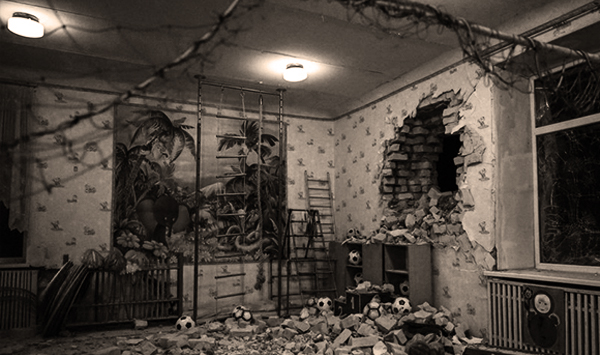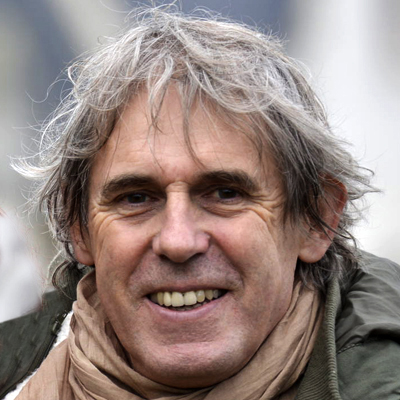Français | English
For the other articles see > SPECIAL ARCHIVE UKRAINE
In closing this chronicle that has stretched out across these one hundred days of this current war in Europe, I return to the Black Sea and Turkey.
On Wednesday June 8 2022, Mevlüt Çavuşoğlu, head of Turkish diplomacy, held a meeting in Ankara with his Russian counterpart Sergey Lavrov, well-known right-hand man to Vladimir Putin and permanent fixture at the Kremlin. These discussions were mainly about grain exports and thus, about the setting up of a maritime route in the Black Sea for “grain corridors”. In order to achieve this, Turkey was offering its kind services in securing convoys, following the de-mining of the Black Sea and, notably, of the port in Odesa. It was also proposing the creation of an “observation center of these corridors” in Istanbul.
At the onset of the Russian aggression against Ukraine, Recep Tayyip Erdoğan had forbidden passage through the straights of the Bosphorus and of the Dardanelles to warships, as the Montreux Treaty authorizes him to do.
In fact, this measure will need to be controlled even closer should such food corridors see the light of day.
However, on this Wednesday June 8th, no Ukrainian representative was invited to the discussions, although Turkey claimed to be working at reaching an agreement with the backing of the UN. Yet, the grain and oil reserves trapped by war clearly belong to Ukraine where the country being bombarded, they occupy silos and other stocking facilities required for the 2022 harvests, even if these will be reduced because of the war.
This meeting with heavy media coverage could not reach any conclusions since the main party, Ukraine, was neither heard nor listened to, even if one may expect that the Turkish regime apprised it prior to the event.
During the final press conference, Sergey Lavrov mainly insisted on the demand that sanctions against Russia be lifted, the Ukrainian shoreline de-mined, and he denounced Ukraine’s “aggressive attitude in all matters. He then minimized the food problem created by the non-export of grain and insisted on the fact Ukraine is entirely responsible for this, since Russia is also placed in a difficult position for commercial use of the Black Sea. A speech entirely Lavrov-style, with the inevitable reference to “nazis”. As there has been report of transportation of merchandise via Sebastopol in Crimea, among other places, one can readily understand that Russia’s main goal is the lifting of sanctions and the de-mining.
A Ukrainian journalist in attendance threw a pall on the proceedings when he asked an unscheduled question, that of the theft of grain by Russia in the territories it occupies, and the re-sale at cut prices, notably to… Turkey. This question came following American declarations concerning the hijacking of Ukrainian wheat and deliveries to friends of Russia , Syria among them, observed recently.
Mevlüt Çavuşoğlu’s cherished framework for moving forward, thus ended on questions calling attention to the diplomatic game being played jointly by Turkey and the Russian regime, and the sincerity of the intent of achieving free circulation.
For over a decade, relations between Russia and Turkey may appear very uneven and set on a zigzaging path. And yet, their continuity rests on the opportunism displayed by both parties, in every circumstance where their interests and imperial wishes find common ground. This is the case for Syria, energy, regional geopolitical relations and international policies aimed at the United States.
As a reminder, despite being a member of Nato, Turkey acquired Russian S400 missile batteries and maintained its order for a second lot, even with the risk this entailed for the funding of some of its military programs, such as the Altay tank or the TFX fighter plane. At the same time, it lost its ranking in obtaining American F35 fighter planes in the Nato framework. And now, Recep Tayyip Erdogan is threatening to block Finland and Sweden’s access to Nato. Turkey is dependent for energy and has entrusted a part of its nuclear projects to Putin.
Turkey also avoided joining the sanction policy against Russian oligarchs and greets them openly in its vacation spots, while leaving the door open to migrating opponents to the war, from the wealthy classes of Russian towns. Russian citizens do not require visas there.
And, at the same time, Turkey has championed delivery of its combat drones to Ukraine, even before the onset of the current war.
So what makes Turkey run to take part in this diplomatic ballet?
And what are the intentions of the Russian regime when it plays the card of food shortage?
In both of these approaches, one finds the political component of ex-Empires that takes the form for both of them of wars to regain territories they consider lost. The Ottoman dream and ex URSS, briefly stated. On the international level, they are impelled by the same wish for wars of influence on the African continent among others. Thus, the issue of grain completes that of Wagner, for Putin, and for the other, the ex-Gulen Coranic schools that are now part of Turkey’s advanced diplomacy. Offering the face of a food savior against the consequences of a war manipulated by the West , is neither innocuous nor accidental.
Imposing its diplomatic presence at the international level is also vital for the Turkish regime with approaching elections and a catastrophic domestic economy showing a growing inflation, denied by the regime and relabelled high cost of living . It also means establishing the required leverage to get European States and the US to close their eyes on the projected and announced capture of new territories in Northern Syria, for example, even if this requires exerting blackmail within Nato.
In such a context, all gesticulations, even devoid of tangible results, are worth the effort.
According to the FAO (Food and Agriculture Organization of the UN), some 300 million people are directly impacted in the poorest countries by the shortage of grains and oil caused by the blockades. These poverty-afflicted populations are and will be impacted both directly through lack but even more so by the doubling of prices, capitalist markets playing a dizzying game of rising costs. To the double sentence brought on by climate change and the destruction of local markets, will be added the doubling of prices by the global ones. In such a case, the situation could be used to its fullest by the Russian regime.
The wheat and hunger weapon is thus being used consciously by the Putin regime and, with it, the threat of increased migrations toward Europe, which the Russian regime knows to be a very sensitive issue, since it participated in an underhanded way in the manipulations of migration and misery on the border of Belarus. There also, Turkey played a most ambiguous role.
The Arab Springs had set capitalist globalization quaking, now, the fear of hunger riots and their destabilizations added to the climate crises and their consequences are starting to take hold of Western countries. The UN is right in raising the alarm, but the Western powers themselves, touched by inflation, fear a generalization of hunger induced social troubles that would question strong allied regimes. Always bad for business.
Like a time bomb.
Vladimir: We must come back tomorrow.
Estragon: What for?
Vladimir: To wait for Godot.
Estragon: That’s true. (A pause). He hasn’t come yet?
Vladimir: No.
Estragon: And now it’s too late.
Vladimir: Yes, it’s night time.
Estragon: What if we give up? (A pause). What if we dropped him?
Vladimir: He would punish us. (Silence. He looks at the tree). Only the tree lives.
Estragon: (Looks at the tree) What is it?
Vladimir: It’s the tree.
Estragon: No, I mean, what kind?
Vladimir: I don’t know. A willow.
Estragon: Come and see. (He brings Vladimir toward the tree. They stand in front of it. Silence.) And what if we hung ourselves?
For the other articles see > SPECIAL ARCHIVE UKRAINE
Translation from French by Renée Lucie Bourges
Support Kedistan, MAKE A CONTRIBUTION.




